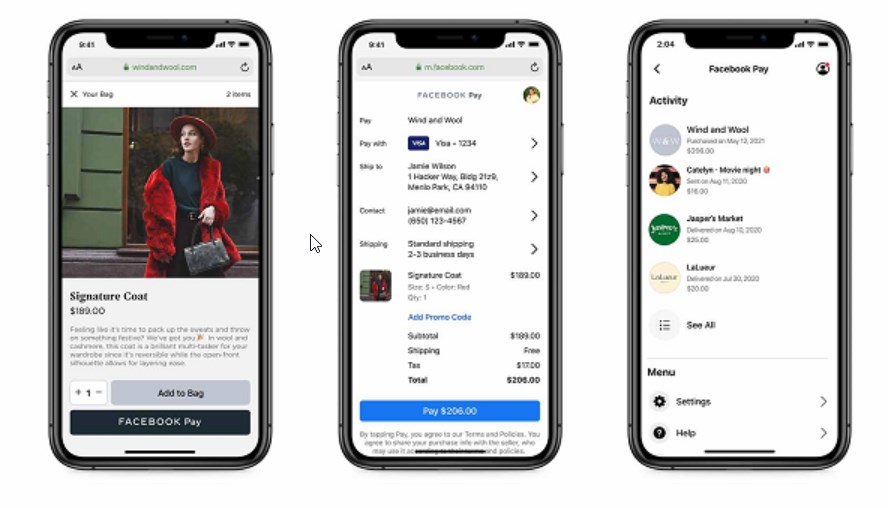Get the latest breaking news and trends about marketing with our newsletter. Stay updated on what is new in the world of marketing and outperform your competition.
Get daily dose of marketing news in quick TL;DR style.
We all have access to all the music in the world, as well as easy software and tools to create playlists, in any way we want.
Yet, if you’ve been to a party where someone tries to be the DJ using their phone, you’ve probably appreciated the need for a good DJ who can can select the right playlist for the right crowd, and knows exactly what the party needs, and when it needs it.
Saijo is The DJ when it comes to digital marketing news.
Facebook’s Making Facebook Pay Available as a Payment Option on Third Party Websites (USA only)
socialmediatoday.comFacebook is looking to broaden its payment reach, by making Facebook Pay available as a check-out option on third-party websites.
Starting this August, businesses in the US who use participating platforms will have the ability to enable Facebook Pay as a payment option directly on their websites. They are starting the rollout with Shopify merchants and expect to expand availability with more platforms and payment service providers over time.
If you’re a Shopify merchant in the US that’s interested in adding Facebook Pay on your site, you can find more information here.
There is an Entire Industry That Links Unique Ids Linked To Phones To Real People And Their Address
vice.comTech companies have repeatedly reassured the public that trackers used to follow smartphone users through apps are anonymous or at least pseudonymous, not directly identifying the person using the phone. But what they don’t mention is that an entire overlooked industry exists to purposefully and explicitly shatter that anonymity.
They do this by linking mobile advertising IDs (MAIDs) collected by apps to a person’s full name, physical address, and other personal identifiable information (PII).
Anyone and everyone who has a phone and has installed an app that has ads, currently is at risk of being de-anonymized via unscrupulous companies,” Zach Edwards, a researcher who has closely followed the supply chain of various sources of data, told Motherboard in an online chat.
An overview of how to build a responsive and accessible breadcrumbs component for users to navigate your site.
Chrome Getting HTTPS-first Mode As Google Plans To Replace The Address Bar Lock Icon With A Full-page Warning For HTTP
9to5google.comChrome is rolling out an HTTPS-First Mode and experimenting with a replacement for the lock icon in the address bar.
The first expansion is an HTTPS-First Mode that will start rolling out with Chrome 94 in September. All page visits will first try to load over HTTPS. On sites that don’t work, the Google browser will show a full-page warning before connecting over HTTP.
WooCommerce Patches Critical Vulnerability, Sending Forced Security Update from WordPress
wptavern.comWooCommerce has patched an unspecified, critical vulnerability identified on July 13, 2021, by a security researcher through Automattic’s HackerOne security program. The vulnerability impacts versions 3.3 to 5.5 of the WooCommerce plugin, as well as version 2.5 to 5.5 of the WooCommerce Blocks feature plugin.
WordPress.org is currently pushing out forced automatic updates to vulnerable stores, a practice that is rarely employed to mitigate potentially severe security issues impacting a large number of sites. Even with the automatic update, WooCommerce merchants are encouraged to check that their stores are running the latest version (5.5.1).


 Web Stories
Web Stories

